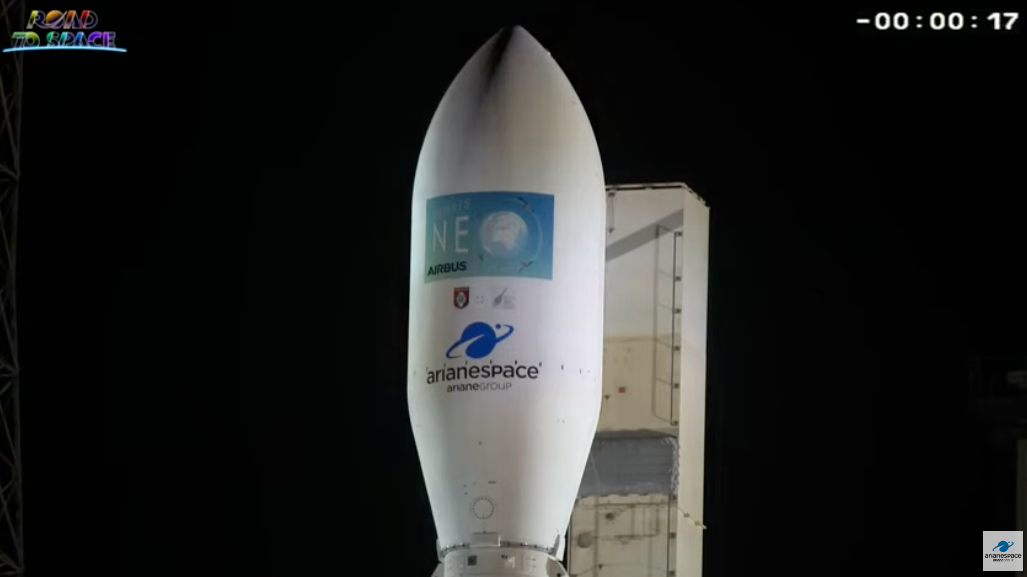Arianespace and ESA Say Nozzle Material Led to Vega C Failure

The payload fairing for Arianespace Flight VV22, which failed. Photo: Screenshot via Arianespace
Arianespace and the European Space Agency (ESA) have concluded the independent inquiry into the failure of the second Vega C launch, reporting March 3 that the second stage Zefiro 40 nozzle deteriorated during the mission.
The Commission confirmed that the cause was an “unexpected thermo-mechanical over-erosion of the carbon-carbon (C-C) throat insert of the nozzle.” The nozzle was procured by Avio in Ukraine. They concluded there was likely a flaw in the homogeneity of the material.
The commission said the criteria used to accept the throat insert was not enough to determine if it was flightworthy, and the commission said this material can no longer be used in flight. Avio is implementing an immediate alternative solution for the Zefiro 40’s nozzle with another C-C material, manufactured by ArianeGroup, already in use for Vega’s Zefiro 23 and Zefiro 9 nozzles.
As the issue is with the Zefiro 40, it does not affect the Vega rocket with its Zefiro 23 and Zefiro 9 nozzles. Arianespace will reassign a planned Vega C mission to one of its two remaining Vega launchers with a targeted launch date before the end of summer 2023.
They plan to restore Vega C to flight by the end of the year with the alternative C-C material and an additional qualification phase.
“ESA will fully engage its engineering and project management expertise to support Avio in the implementation of actions required to regain confidence in the launcher system. Restoring Europe’s independent access to space is ESA’s priority, and I am therefore glad that we can proceed with Vega launch campaigns while preparing Vega C to safely return to flight,” commented ESA Director General Josef Aschbacher.
The December 20 failure was just the second launch for Europe’s new, Vega C, light-lift launcher. The mission lost satellites Pléiades Neo 5 and 6, the final two satellites of the Airbus Pléiades Neo Earth observation constellation, both manufactured by Airbus.
Arianespace CEO Stéphane Israël previously emphasized that the Vega C failure does not impact the Ariane 5 and Ariane 6 programs. Arianespace has two more Ariane 5 launches, and the first Ariane 6 flight is set for the end of 2023.